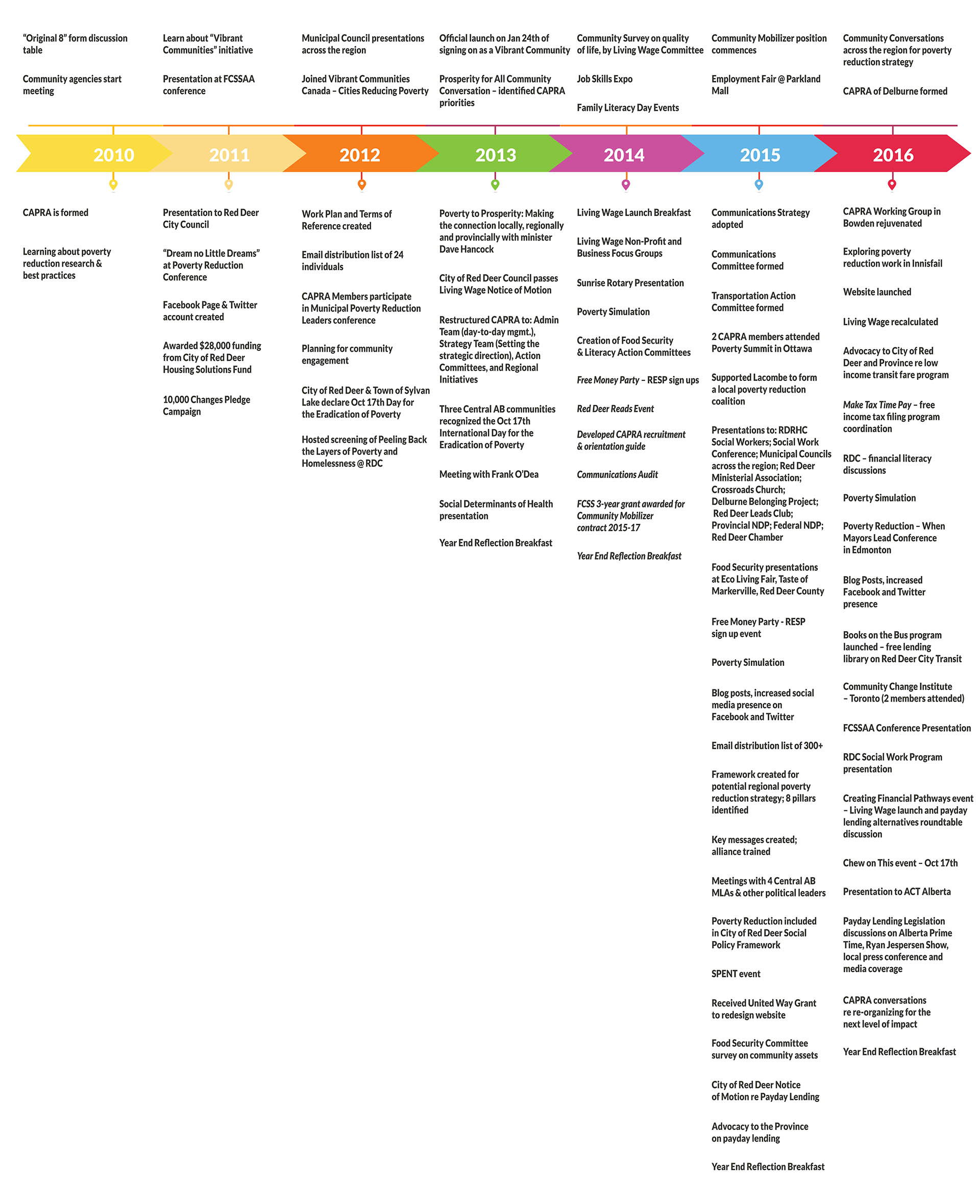Alberta’s newly elected NDP government has expressed a commitment to fully implementing their campaign platform, which included a plan to raise the minimum wage to $15.00 by 2018.
Last week we were invited to Edmonton to attend a round table on the subject. Business owners, union reps, not-for-profit leaders and poverty reduction groups were invited to talk with government about the implications of this new reality. With the first incremental raise coming October 1st, this important conversation gave government plenty to think about in terms of how to roll this out and what else might need to happen.
Part of the CAPRA input was centered around the limitations of mandatory minimum wage as a poverty reduction action. Let’s compare:
| Living Wage | Minimum Wage |
|---|---|
| Calculated community by community (for example, the Living Wage in Calgary is $17.29. In Grande Prairie, it is $15.55. In Rimbey, it is $17.63) | One wage for the entire province; may or may not be adequate |
| Can be combined with other employee benefits and incentives to add up to the living wage | Does not give employers opportunity to combine in other perks |
| Carefully calculated reflecting actual cost of basic needs | Typically calculated on unemployment rate, inflation rate, and average family incomes |
| Employer-driven (employer feels responsible to provide adequate pay and take care of employees) | Government mandated |
It can’t be stressed enough how important it is to ensure an adequate total monthly or annual income for Albertans. Fifteen dollars per hour may or may not be enough to live on in a given community, but the real difference in whether it is “not enough” or “woefully inadequate” is dependent upon the number of working hours in a given pay period.
There’s plenty of evidence showing the good sense of paying decent wages. Employers who offer their staff a living wage find improved productivity, reduced absenteeism and staff turnover, increased customer loyalty and an overall improvement in the bottom line. See our infographic for more details.
Paying employees fifteen dollars per hour is a good thing (unless you can pay more!), but a fifteen-dollar-per-hour minimum wage has its limitations. CAPRA hopes that employers will concentrate their efforts on paying employees adequately, so that they can meet the cost of living and participate in the economy, rather than focusing on a legislated number.
—
Central Alberta Poverty Reduction Alliance, or CAPRA, is a group of people and organizations who work collaboratively to find local solutions and make a real difference on poverty. We have over 45 members and hundreds of community supporters advocating for social change that will improve opportunities for people experiencing poverty. For more information, contact Dianna Souveny at 403.342.8102 or Contact Us here.






